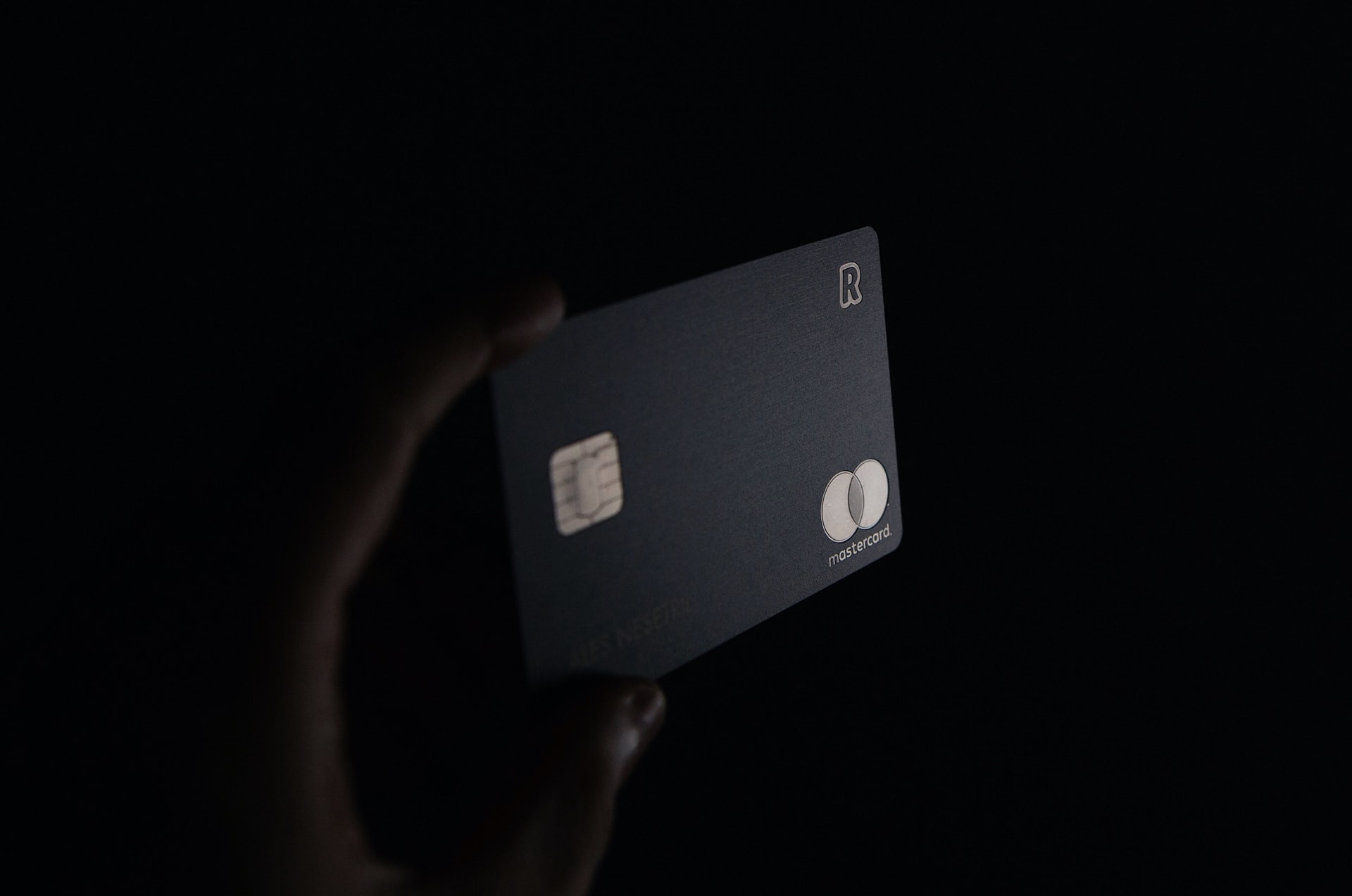Credit cards are useful financial products that increase your purchasing power, build your credit if you make on-time payments, and provide rewards for every purchase. It’s no wonder over 183 million Americans use credit cards for their purchases, but getting a card will hurt your credit score in the short term. A lower score hurts your chances of qualifying for a loan in the future, and it’s entirely possible that your credit card application will get rejected. A secured card is a more reliable path to credit for consumers with low credit. These financial products cater to consumers with less-than-perfect credit and work just like a traditional credit card. While a secured credit card is one solution, it is possible to get pre-approved for a line of credit without a credit check. We will discuss how secured credit cards can help with your finances.
What Is a Secured Credit Card?
A secured credit card is a debt product offered through many banks and credit card issuers, primarily for poor credit applicants or people with limited credit history. Secured credit cards are available to borrowers with varying credit backgrounds. You can use it to repair your credit by paying bills and covering the debt for everyday purchases before the due date. However, unlike a traditional credit card, it requires a cash deposit upon approval before the credit card issuer opens your account. These cards also have more limits around them to keep your spending in control.
How Does a Secured Credit Card Work?
Secured cards provide an easier path to building credit and financing your purchases with a credit card. However, they aren’t as good as unsecured credit cards, and people with good credit would usually benefit from a traditional card. While both types of credit cards seem similar on the surface, their slight differences are important to keep in mind. Here’s what you need to know about secured credit cards and how they work.
Card Application
The card application process is the same for secured and unsecured cards. You must be 18 years or older to apply for a card and provide personal details (i.e., name, address, social security number, etc.). However, the key difference is that you’ll also remit funds for the required security deposit before the card can be activated. While this may sound similar to a prepaid debit card, this card’s activity gets reported to the major credit bureaus, a critical distinction that can improve your credit score if you make on-time payments. You will receive your card within a few days or weeks of paying the security deposit, depending on the issuer.
Refundable Security Deposit
The refundable security deposit is one of the key security credit card requirements that separates these financial products. While you do not have to fulfill a minimum deposit requirement for an unsecured credit card, it’s your only path to a secured credit card. Luckily, it’s possible to receive a full refund on your security deposit under the right conditions. In addition, once you’ve used the card responsibly for some time, you can convert it to an unsecured credit card to receive your money back.
Unsecured credit cards are superior to secured credit cards since they have rewards programs, lower fees, higher credit limits, and other advantages. You can find secured credit cards with rewards programs, but they are relatively rare, especially compared to unsecured cards. Many people open secured cards, hoping to someday swap them in for unsecured credit cards in the future. Secured credit cards are a stepping stone. Some people use them to repair credit, while others use them to begin their credit-building journey.
You can also close the card if you no longer find it useful and want your money back. The credit card issuer will deduct the amount owed from the security deposit (if applicable) and return the remaining balance to you. It isn’t best to close a credit card since doing so will affect your credit history. Credit history makes up 15% of your score, and closing a credit card will make a dent in your credit history. However, if the fees are excessive, you already have strong credit, and a potential loan application is nowhere in sight, it may make sense to close the card if you no longer need it. Most people would benefit from keeping the card open and never using it again once they have a suitable replacement.
Spending Limit
Your security deposit is typically equal to your credit limit. If you apply for a secured credit card and get approved for a $500 limit, you’ll need to remit this amount to the credit card issuer before you can start using it. You will have to continue funding your secured credit card if you want to use it. This card is similar to a debit card since it relies on your funds instead of pulling you into credit card debt.
Deposit as Collateral
Secured credit card issuers can use your deposit as collateral if you have issues keeping up with payments. Struggling with credit card payments can result in the credit card issuer using your collateral to repay debt and closing your credit card account. This scenario would hurt your payment history and put your credit score in a bad position. Only take out a secured credit card if you can comfortably repay what you spend.
Usage, Purchases, and Payments
You can use a secured card just like you would use a traditional credit card to make in-store or online purchases up to the credit limit. Each month, you will receive a credit card statement indicating the minimum monthly payment amount. Then, you can use money in your bank account to repay the balance early to avoid high interest rates on your debt.
It is a good idea to pay off the entire balance instead of stopping with the minimum payment. The minimum payment keeps you in good standing, but the remaining balance will grow because of the high interest rate. It is also important to consider that your security deposit will not be used to cover purchases or the minimum monthly payment amount. You will have to use additional funds to repay your credit card balance.
How Does It Differ from an Unsecured Credit Card?
Unsecured credit cards do not require a security deposit. Consequently, they’re generally reserved for consumers with good or excellent credit scores. Financial responsibility will help with any credit card, but it’s more important to practice responsible use of unsecured cards. A higher limit and more spending power have their advantages, but if you plunge deep into credit card debt, it can become difficult to recover. Secured cards have safety brakes in place to minimize how much money you can lose.
If you qualify for a regular credit card with a lower credit score, expect to pay steep fees. In addition, the cost of borrowing, or APR, will also likely be on the higher end. Credit card companies look at several factors when deciding on those rates, including your credit score. Therefore, you should review the terms and conditions of an unsecured card to understand the fees and APR involved. This analysis can help you avoid an unpleasant surprise.
What Are the Benefits of a Secured Credit Card?
Rebuild Credit
Secured credit cards make it easy to build credit if used responsibly. Your credit history, which accounts for 35% of your credit score, will improve if the credit card issuer reports payments to the three major credit bureaus – Experian, TransUnion, and Equifax. It’s equally important to keep your balance at or below 30% of the credit limit to boost your credit rating. Keeping your credit utilization ratio below 10% will provide maximum credit growth. A low credit utilization ratio implies a good payment history, and these two scoring categories make up a combined 65% of your credit score.
Deposits
A secured credit card holder will receive their security deposit back (minus the amount they owe) upon closing their account. You can also receive this refundable deposit if you convert your type of credit card from secured to unsecured.
Expenses
Secured credit cards have fees and interest rates. You can avoid interest payments by paying your balance in full before the due date. Paying on time will also improve your credit score and help you qualify for a better card in the future. You should only spend as much on your credit card as you can pay back on time. Buying more than you can afford will create financial complications, especially if you carry over those spending habits with an unsecured card.
Budgets
A secured credit card can also help you manage your spending more effectively if used to cover recurring monthly expenses. Secured cards rely on your security deposit for the limit, so it’s easier to scale back on unnecessary spending. A lower ceiling gives you less room to expand your credit card debt and go into dangerous financial territory.
Payments
Most credit card issuers let cardholders manage their accounts from an online dashboard or mobile app. The online banking experience makes it easier to repay debts on time and get a snapshot of your finances.
Factors to Consider Before Applying for a Secured Credit Card
A secured credit card offers several advantages, but it isn’t for everyone. If you consider all of these factors, you will have a better understanding of whether this financial product is right for you.
Your Credit Score
If you have bad credit or nothing on your credit report, you may have to get started with a secured credit card. This card is a great way to get started, build your credit, and qualify for lower interest rates when you apply for significant financial products like mortgages and auto loans.
How Much You Can Cover for the Security Deposit
Financial institutions and credit unions will require a security deposit before giving you a secured credit card. This deposit acts as your collateral and establishes your credit limit. If you don’t have much funds for the security deposit, you may want to wait. You only need a few hundred dollars to get started, and you can get the security deposit back as soon as you close your card or upgrade it to an unsecured card.
Fees and Interest Rates
The best-secured credit cards don’t have many fees. Most cards do have late fees, but it’s good to look at the terms before getting started. Cardholders may have to deal with high interest rates. A low credit score will give you fewer choices, but a cardholder can qualify for better rates in the future. Staying on top of your credit card debt can ensure you don’t have to worry about fees or rates.
Perks
Most secured credit cards do not have perks. A card without an annual fee that offers any type of points or cash back may be one of the top choices you can find.
Applying for a Secured Credit Card
It’s straightforward to apply for a secured card. You can follow these guidelines if you are ready to get started.
How to Qualify
Most credit card companies do not require you to have any credit history to receive a secured credit card. You will have to provide basic information like your ID and Social Security Number. You will need a sufficient security deposit, which will be your credit limit. Each company posts its requirements, but most of them fall within those lines.
How to Apply
You can apply for a secured credit card through a card provider’s website. You will have to provide some information like your ID, address, name, and email. Not every issuer runs a hard credit check during the application process.
Where to Apply
Many credit card companies have these types of cards readily available. You can compare cards in an online marketplace or read detailed online reviews of the best-secured credit cards.
Is It a Good Idea to Have a Secured Credit Card?
It can be a good idea to get a secured credit card if you have bad credit or no credit history. A secured credit card isn’t going to be your last card. These cards do not have many rewards and have low credit limits that depend on your security deposit.
The main strength of these cards is that you can easily get them even if you have bad credit. These cards let you build your credit history with on-time payments. A higher credit score is pivotal for borrowing enough capital to buy a house or a car. A good credit score can also help you qualify for a lower interest rate on a future loan.
Once your credit score is in a good place, you should upgrade to an unsecured credit card that has better perks and lower rates and fees.
FAQs About Secured Credit Cards
It can take several weeks or months to notice progress with your secured card. The timeline depends on personal circumstances, such as the items on your credit report and your current score. Building credit is a long-term journey.
Some credit card companies offer transitions from secured to unsecured credit cards. You should see if the company offers unsecured credit cards and if they let you upgrade your card instead of closing the account. For some cards, it may be necessary to close the account to get your security deposit back rather than getting it back when you upgrade to an unsecured card.







